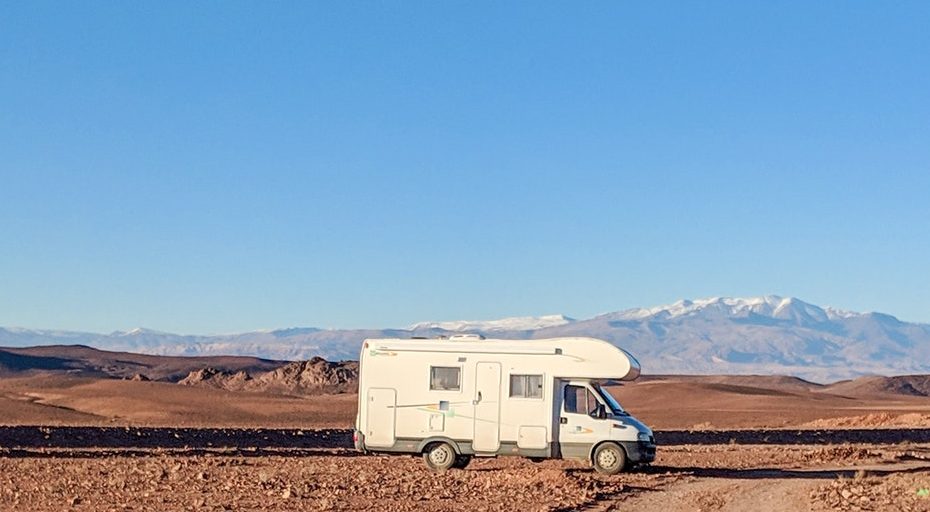There is a lot to consider when packing the RV for a road trip. Size, available space, weight, and necessity all come in to play when deciding what makes the cut. Here’s our list of 10 accessories (in no particular order) that you shouldn’t hit the road without!
1) Water-Pressure Regulator
Whether it is an Adjustable or Non-Adjustable Water Pressure Regulator, you are better off having one of these connected. You never know what the pressure is going to be at any given park and the last thing you want is that something bursts in your RV and causes flooding and water damage. If you want to be able to control the pressure and not just lower it, get an adjustable version.
2) Water Filter
This one may seem a little self-explanatory but needs to be on the list. You may be hooking up at a lot of different places or might just be going to one, but in either case, you do not know the water quality. There are several different systems to filter water in an RV, some fancier than others. Some systems that can be built-in, some counter-top setups, and then there is the basic water filter on the line between your hose and the park’s water connection. You know, the usually blue cylinder you see at the end of the hose? Yep, that’s it. At the very least we’d recommend connecting that filter and let it be your front-line defense against sketchy water. You can always add more of the fancy stuff after to continue to filter even further.
3) Freshwater hose
You’ll need to get water into your RV somehow. Spoiler, the “somehow” is with a hose. And if you plan on being safe and smart, you won’t fill your fresh water tank with the same hose you just did a black tank flush with. Make sure you have a dedicated hose for just your fresh water fill-ups or your connections to city water.
4) Holding-Tank Treatment
Using a holding-tank treatment will help break-down solids, reduce odor, and prevent clogs. There is a large variety of these so you may have to try a few different brands or options before you settle on one that you prefer. If you are using your black tank/toilet in your RV at all, then I recommend using some kind of treatment.
5) Sewer Hose Kit
You can buy the pieces separately or in a kit, but there are a few components for dumping your tanks that you will want to make sure to have. Firstly of course a sewer hose, which should already have the fitting to connect to your RV. I would also recommend getting a clear elbow connector for the other end. Though you may not really want to see what is happening there, it’s better to know what’s going on and when it is finished. To round out the sewer setup, I also suggest a sewer hose support of some kind. This will keep the hose up off the ground and support its weight while keeping it at a preferred angle to allow for forward motion of waste through the hose.
6) Tire Chocks/Wheel Stabilizer(s)
To help minimize movement in your trailer when you are all setup and unhitched you will want to use something to keep the wheels from rolling. Chocks which get wedged under the tire, or a stabilizer that goes between them are both good options.
7) Leveling Blocks
Not all sites are created equal, or level, so you’ll want to have some way to correct this if you do not have some kind of automatic leveling system in your RV. Typically these will be stackable blocks that can be used to form a small platform you can roll the tires up on to on either side to even out. There are other versions with fewer pieces and no stacking you may prefer as well.
8) Jack pads
You may not always be parking on concrete, and especially if you are not you will want to have these under your trailer tongue jack or stabilizers. They help spread out the weight and keep you from sinking in soft ground. Trust me, I know firsthand what happens to stabilizers if you forget to put these down and parked in a grassy area right before a sudden downpour. In case you are wondering, four new stabilizers happened.
9) Surge Protector/EMS
You will probably want to spend the money and get an Electrical Management System (EMS) rather than just a basic surge protector, but I would not suggest connecting to shore power without at least the surge protector. Surges, as well as power drops, can cause issues to your RV electrical system and take components and appliances out with them. Better to spend a little money to prevent it, rather than a lot to recover from it.
10) 30- to 50-Amp or 50- to 30-Amp adapter
Always good to have on hand and you never know when you may need it. Maybe you want the last available space at a park even if it is 50 amp and you run on 30. With an adapter you keep your options open.
While this is not a total list of accessories for your RV, we hope it did at least help get those wheels turning when creating your own list! Safe Travels and Happy New Year!
